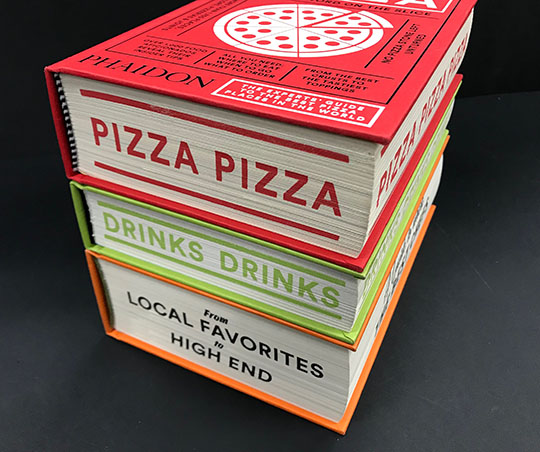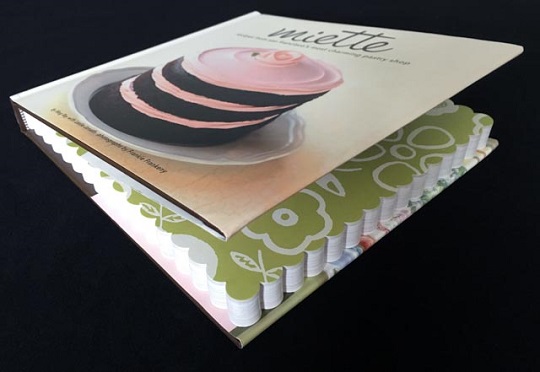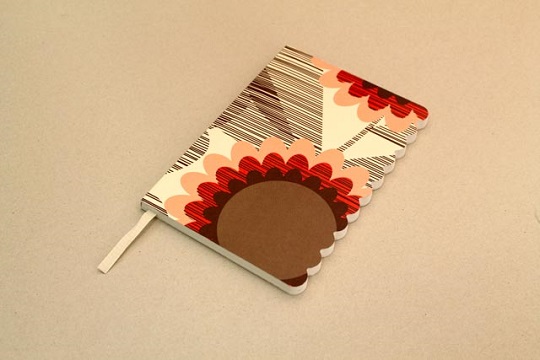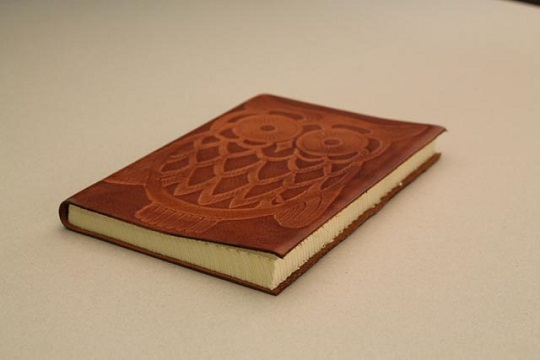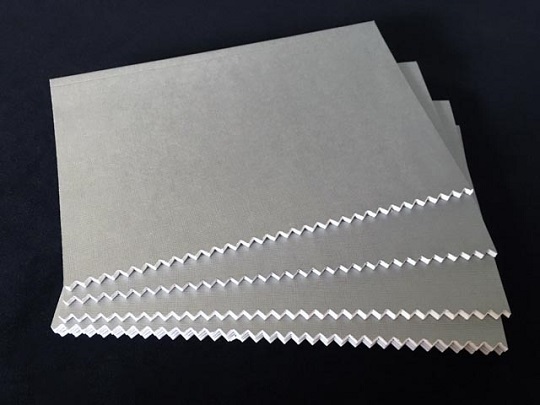I recently did a video about face printed books that are printed by a printer on an offset or digital press. This video describes the process of printing the head and/or face and/or the foot of a finished bound book after the book is bound. The books can be either perfect bound or hard/case bound.
The “printing” is done first by die cutting a “stencil” of a pattern or logo or words. The “stencil” is placed over the area to be printed and the outer surface is either spray painted or the “ink” is applied with a roller. There are literally scores of colours to choose from, the range of patterns and sizes and type fonts are endless. Book “edge painting” is much more expensive than press printing the edge copy or patterns but…edge “printing” is much more precise, detailed, colourful, vivid and memorable than press sheet print “edging.”
What are Edge Cut Books? Simply, they are the open edges of a bound book (can be perfect-bound, saddle stitched or case bound styles) that are die-cut or “roughed” or roughly “SAWN” or roughly “slit”.
The first two pictures are of a book that was PMC die-cut on all three sides.
The next image shows the same PMC style die-cut as above, but only on the face.
The image below shows a book that was “run through” by a rough saw. The books are “sawn” in a pile three or four inches high.
The image below shows a book that has a rough edge only on the front or face of the book. In this instance, the signatures (or sections) when folded were roughly “slit” on our folding machines.
The image below shows a book that was “run over” a notched wheel to produce the roughed edges.
The following image shows a book that was “rough-slit” on a folding machine on the front or face of the book and the foot or bottom of the book was “roughed” on a “notched roller”.
The following two images show books that were “pinked” with PMC die-cut process. Pinking is a word used to describe the same multiple point effect on thick swatches of sample cloth.
Features
- Rough surface
- Many variatio
Benefits
- Adds great perceived value to a book
- Very, very distinctive
Factors to consider
- Same paper stocks are not conclusive to either PMC die-cutting, roller roughing, slitting or nicking, etc.
- Expensive

